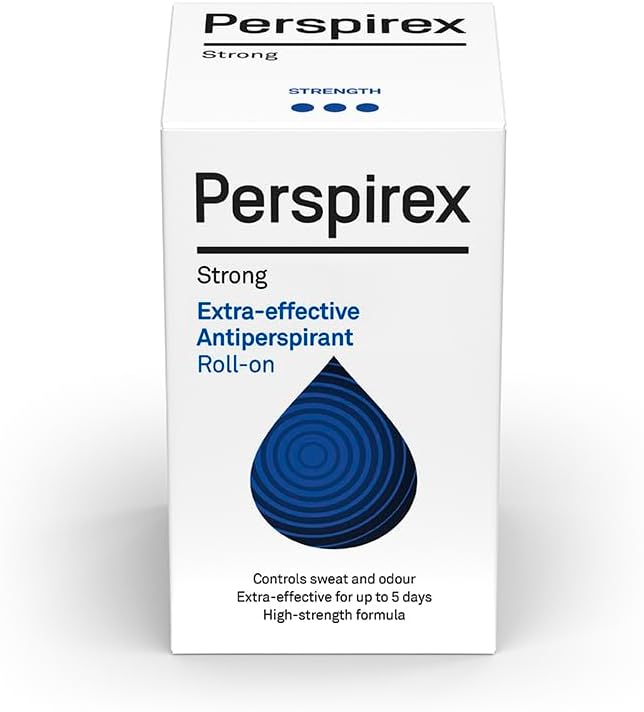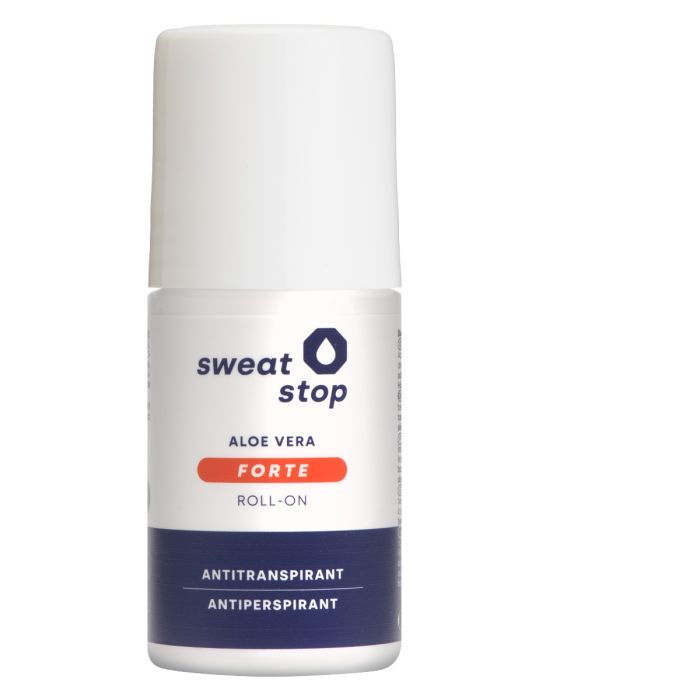What causes excessive sweating apart from the heat? 9 common triggers revealed by experts
Heat aside - what causes excessive sweating? If your sweating is noticeably worse than others this summer, here's what the experts want you to know
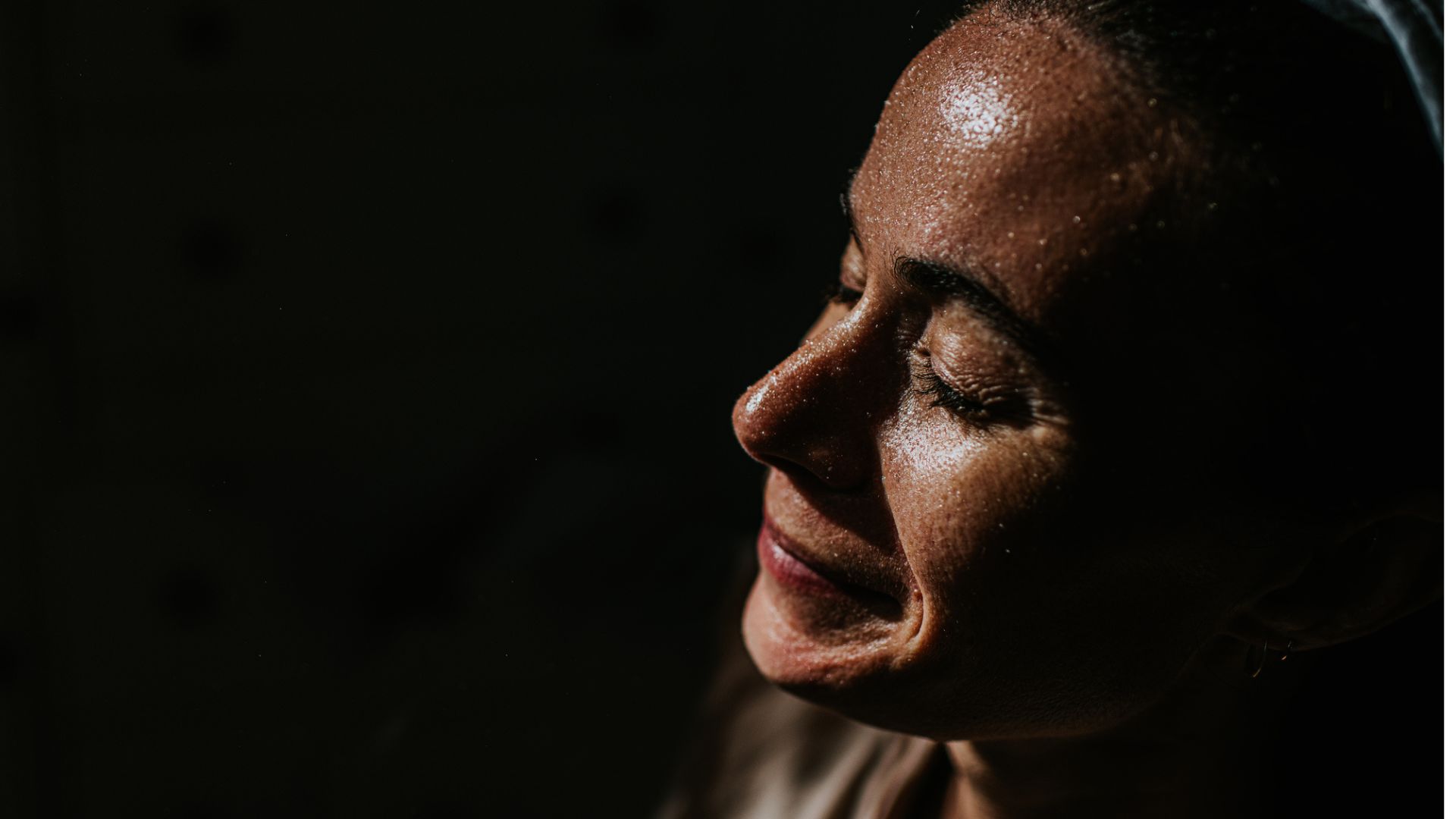

Wondering what causes excessive sweating? While the British summer has well and truly arrived, causing many of us to feel a little hot under the collar, if you find yourself sweating more than most - or so much that it has a serious impact on your life - it may be caused by more than the weather.
From menopause symptoms to lifestyle habits, there can be several reasons why you're sweating excessively - but a key way to recognise when your sweating is out of the ordinary is the impact the condition has on your life. "If you find sweating affects your daily activities and if your skin stays wet for a long period, with affected areas like the underarms, hands, soles, and face, [it may be a sign of something more serious]," says dermatologist and cosmetic specialist Dr Leah Totton.
Here, woman&home speaks to a selection of dermatologists, functional medicine specialists, and nurse practitioners who deal with the condition daily. They reveal what causes excessive sweating - and what you can do about it this summer.
What causes excessive sweating?
1. Primary hyperhidrosis
Hyperhidrosis is the technical name for excessive sweating not caused by another medical condition, heat, or exercise, says Dr Mayoni Gooneratne, a functional medicine specialist. "It often affects specific areas like the palms, soles of the feet, underarms, and face. The exact cause is unknown but it may be related to overactive sweat glands."
Those with primary hyperhidrosis often sweat so much that it soaks through clothes and drips off the skin.
"The cause of primary hyperhidrosis is unknown, but it is believed to be due to overstimulation of the eccrine sweat glands triggered by the nervous system," says Dr Aveen Connolly, a consultant dermatologist at the Cadogan Clinic.
Dr Mayoni Gooneratne is a prominent medical doctor with a diverse background in both surgery and functional medicine. Her career spans significant contributions to women's health, entrepreneurship, and medical education. Formerly a colorectal and pelvic floor surgeon in the NHS, she has transitioned into empowering female entrepreneurs and professionals to prioritise their health effectively and efficiently.
2. Secondary hyperhidrosis
Primary hyperhidrosis is a condition in itself, while secondary hyperhidrosis tends to be a symptom of another medical issue, such as hyperthyroidism, diabetes, and certain infections, says Dr Gooneratne.
Sign up for the woman&home newsletter
Sign up to our free daily email for the latest royal and entertainment news, interesting opinion, expert advice on styling and beauty trends, and no-nonsense guides to the health and wellness questions you want answered.
"If you are experiencing persistent or severe excessive sweating, it's important to consult with a healthcare provider to determine the underlying cause and explore appropriate treatment options," she says.
3. Stress
"Emotional factors, such as stress, anxiety, and nervousness can stimulate the sweat glands, leading to increased perspiration," says Dr Gooneratne.
This happens because our heart rate increases, which pushes adrenaline around the body and causes sweat to be released from the eccrine glands in the hands, forehead, and feet. So, if you find your sweat concentrated in these areas, high cortisol levels could be the reason.
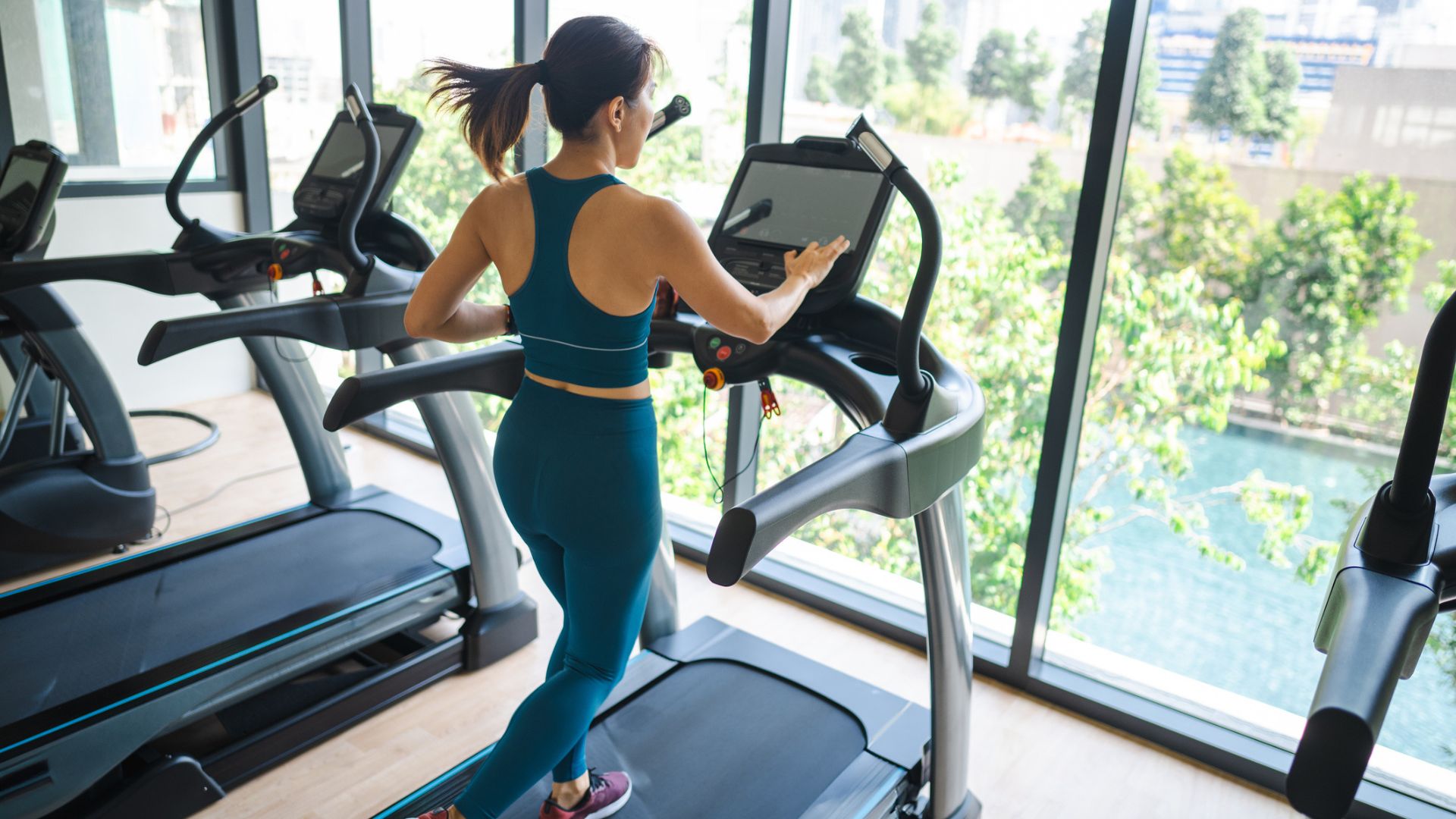
Regular exercise can cause you to sweat - but it also helps to regulate your body temperature.
4. Menopause
One of the most noticeable symptoms of perimenopause is sweating - both hot flushes and night sweats. "Night sweats are excessive sweating episodes that occur during sleep, often drenching nightwear and bedding," says Dr Gooneratne, while hot flushes typically occur during the day and come with the feeling of skin being hot for as little as 30 seconds.
"They are a common symptom experienced by women going through menopause due to hormonal changes," she says. "During menopause, oestrogen levels fluctuate and eventually decline. As oestrogen helps regulate the body's temperature control system, reduced levels can lead to the hypothalamus (the body’s thermostat) becoming more sensitive to slight changes in body temperature, triggering sweating as a cooling mechanism."
5. Certain medications
Most medications, including our regular painkillers like paracetamol and ibuprofen, come with side effects. It shouldn't be a surprise then that many drugs have side effects that include sweating.
These tend to be drugs that impact the brain in some way and antidepressants, antipsychotics, and opioids sit among them.
6. Being overweight
If you are overweight, you may find that you sweat more than other people. "Body size itself is one of the factors [that can lead to excessive sweating]," says Nina Prisk, a leading aesthetics nurse and independent prescriber. "The bigger a person is the more body mass they have and so the more heat their body generates. Consequently, more sweat is needed to cool it down."
Excess body fat can also act as insulation, notes Dr Gooneratne, trapping heat and raising body temperature.
NMC Registered Independent Nurse Prescriber Nina Prisk has 15 years nursing experience, working previously as a senior Emergency Department and High dependency nurse, then later in prestigious private cosmetic surgery practices, where her career in aesthetics began.
7. Too much alcohol
It may surprise you to learn that drinking too much can cause you to sweat excessively for days afterwards - not just hours. "Alcohol can increase the heart rate and cause blood vessels to widen, as well as affect your natural hormone balance which can lead to sweating," says Prisk.
Alcohol is also a diuretic - a substance that causes the body to lose water through increased urination. As a response, the body produces more sweat to compensate.
When we're hungover, the body processes the alcohol and produces a chemical compound called acetaldehyde, which can cause sweating, nausea, and our heart rate to speed up.
If you find yourself frequently excessively sweating as a result of drinking too much, it may be worth cutting down on alcohol or even giving up alcohol completely.
8. Spicy food
Spicy food containing peppers is best avoided if you find yourself sweating excessively. Hot chilli peppers contain a chemical called capsaicin that triggers the body into believing it's overheating, causing the body to feel warmer, and leading to sweating that's designed to cool you down.
"Sweating helps to keep the internal temperature of your body at 98.6 degrees by releasing some of this heat," says Prisk. "It does this through heat vaporisation. This is a basic principle of physics which means that as your body heat is used to convert the sweat droplets into vapor, your temperature cools."
9. Too much caffeine
Several studies suggest that the more caffeine you drink, the sweatier you may feel. While many of us enjoy a cup of coffee or tea to start the day, the same caffeine that wakes the brain up activates the central nervous system, raises the heart rate, and as a result, causes the body to start sweating.
If you drink a hot caffeinated beverage, the combination of the caffeine and the heat of the drink may make the problem even worse, so it may be worth trying an alternative to caffeine if you find this happens a lot.
Can you stop hyperhidrosis?
While there is no 'cure' for hyperhidrosis, it can be stopped. "Injecting a muscle-relaxant into the areas that tend to sweat more - such as the scalp, forehead, underarms, and feet - will block the nerve signals for perspiration at the sweat glands and stop excessive sweating," says dermatologist Dr Totton, the founder of Dr Leah Cosmetic Skin Clinics and Dr Leah Skincare.
This should stop the excessive sweating within two weeks of injection - but only lasts for six months, so it's not a permanent solution. But, alongside maintaining good hygiene practices, you can make lifestyle adjustments that may lessen the severity of the sweating:
- Diet: "Reducing your intake of spicy foods, caffeine and alcohol may help manage excessive sweating, and staying hydrated can help regulate body temperature and reduce sweating," says Dr Connolly.
- Relax: Stress is a common cause of excessive sweating, so "managing relaxation techniques and mindfulness can help," she says. "Sometimes seeking counselling may be necessary to address underlying anxiety."
- Exercise regularly: "While exercise can induce sweating during the activity, regular physical activity can improve overall fitness and help regulate body temperature more effectively, potentially reducing sweating in the long term," says Dr Connolly. Try exercise snacking if you struggle to find the time to exercise for longer periods.
- Aluminium antiperspirants: "For those experiencing excessive sweating, antiperspirants containing aluminium chloride are often recommended. Apply to clean and dry skin at night and wash off in the morning. Aluminium chloride works by temporarily blocking the sweat ducts, which reduces the amount of sweat that reaches the skin's surface. Clinical-strength antiperspirants are available over-the-counter and by prescription for more severe cases but brands such as Driclor, Perspirex and SweatStop are popular options," says Dr Connolly.
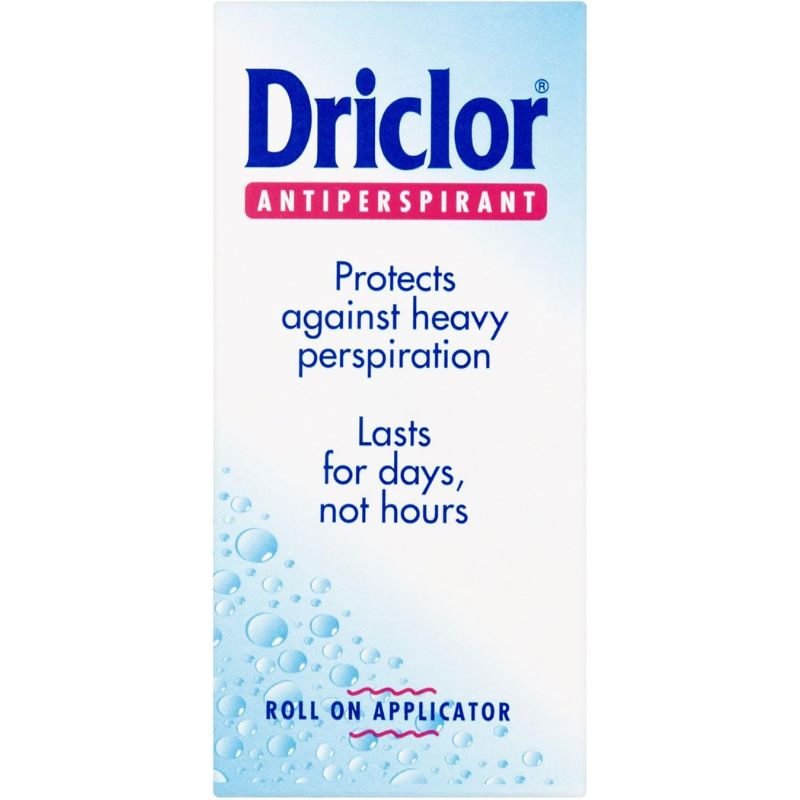
Driclor is one popular deodorant option for those who experience heavy sweating. It's not a treatment for hyperhidrosis but claims to last for "days" and offer a noticeable improvement in the condition after one to two weeks' of use.

Dr Leah Totton is a renowned medical doctor and highly accomplished cosmetic specialist. As well as her own chain of award-winning cosmetic skin clinics, she has her own skincare line. With over a decade of experience and a post-graduate diploma in dermatology, Dr. Leah Totton is not just another cosmetic practitioner; she's an advocate for patient safety and elevated standards within the medical aesthetics and cosmetic medicine industry.
Dr Aveen Connolly is a UK-trained consultant dermatologist at King’s College Hospital NHS Trust. She completed her dermatology training at the internationally renowned St John’s Institute of Dermatology within Guy’s and St Thomas’ and King’s College Hospital, London. She has also completed an externship at the Dermatology Department at Yale University Hospital, United States, in spring 2022.
When should I be concerned about excessive sweating?
You should see a doctor about excessive sweating if it begins to impact your life in any way, the experts say, as you may be dealing with hyperhidrosis. "It's common for hyperhidrosis to be down to genetics. However, people can suffer from hyperhidrosis due to overactive sweat glands, which could be due to an issue with the nervous system or a health condition," says Dr Totton.
It's important to diagnose the issue before treatment, to make sure that the excessive sweating isn't being caused by another, potentially dangerous health condition.

Grace Walsh is woman&home's Health Channel Editor, working across the areas of fitness, nutrition, sleep, mental health, relationships, and sex. She is also a qualified fitness instructor. In 2025, she will be taking on her third marathon in Brighton, completing her first ultra marathon, and qualifying as a certified personal trainer and nutrition coach.
A digital journalist with over seven years experience as a writer and editor for UK publications, Grace has covered (almost) everything in the world of health and wellbeing with bylines in Cosmopolitan, Red, The i Paper, GoodtoKnow, and more.
-
 The eye cream Reese Witherspoon uses to banish 'concealer creasing' and puffiness was already a bargain - now it's on sale
The eye cream Reese Witherspoon uses to banish 'concealer creasing' and puffiness was already a bargain - now it's on saleThe inexpensive eye cream Reese Witherspoon uses to reduce puffiness, dark circles and creases in her concealer is even more affordable than usual today.
By Charlie Elizabeth Culverhouse Published
-
 Cat Deeley's simple approach to self-care makes it so easy to feel good every single day
Cat Deeley's simple approach to self-care makes it so easy to feel good every single dayNo matter how little free time you might have
By Charlie Elizabeth Culverhouse Published
